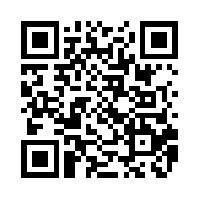Abstract
Very little empirical research has been conducted into faith and work, particularly as it relates to the experience and expectations of Christians in the world of work in South Africa. This article discusses the most recent research of this kind that was conducted by Call42. Call42 conducted an empirical research project on faith, calling, and the world of work between 2011 and 2012. The findings were released to the public after July 2012. Not only is this the most up to date data on this subject at present; the research findings and research process are also worthy of academic consideration. The Call42 research was initiated and commissioned by a group of young Christian professionals (mainly engineers) and as such it brings a perspective on faith and work from within the primary context of the world of work, rather than the theological academy or the church. The findings of the research have implications for the church and its officers (priests, pastors and leaders). It also arrives at some conclusions for Christians in the world of work, students who are contemplating a vocation or career path, and companies and organisations that have an explicit or implicit Christian orientation.Copyright information
- Ownership of copyright in terms of the Work remains with the authors.
- The authors retain the non-exclusive right to do anything they wish with the Work, provided attribution is given to the place and detail of original publication, as set out in the official citation of the Work published in the journal. The retained right specifically includes the right to post the Work on the authors’ or their institutions’ websites or institutional repositories.
Publication and user license
- The authors grant the title owner and the publisher an irrevocable license and first right and perpetual subsequent right to (a) publish, reproduce, distribute, display and store the Work in any form/medium, (b) to translate the Work into other languages, create adaptations, summaries or extracts of the Work or other derivative works based on the Work and exercise all of the rights set forth in (a) above in such translations, adaptations, summaries, extracts and derivative works, (c) to license others to do any or all of the above, and (d) to register the Digital Object Identifier (DOI) for the Definitive Work.
- The authors acknowledge and accept the user licence under which the Work will be published as set out in https://creativecommons.org/licenses/by/4.0/ (Creative Commons Attribution License South Africa)
- The undersigned warrant that they have the authority to license these publication rights and that no portion of the copyright to the Work has been assigned or licensed previously to any other party.
Disclaimer: The publisher, editors and title owner accept no responsibility for any statement made or opinion expressed by any other person in this Work. Consequently, they will not be liable for any loss or damage sustained by any reader as a result of his or her action upon any statement or opinion in this Work.
In cases where a manuscript is NOT accepted for publication by the editorial board, the portions of this agreement regarding the publishing licensing shall be null and void and the authors will be free to submit this manuscript to any other publication for first publication.
Our copyright policies are author-friendly and protect the rights of our authors and publishing partners.

